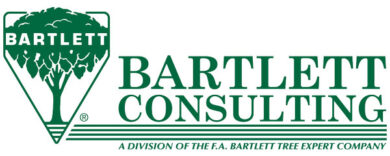Powering Up: When and how to add backhoe loaders and compact excavators to your equipment fleet
By Lynette Von Minden
Ten to 20 years ago, if you asked property owners what types of equipment landscapers are most likely to use, their responses would probably have included lawn mowers, shovels, rakes, tillers, edgers and spreaders. Why? Most people thought of landscape contractors as the people who install and maintain lawns and gardens for a living. Although that simplistic definition is still somewhat true today, it’s also a fact that many contractors have expanded their services over the years. Customers have come to expect a wider variety of services, and as a result, contractors are using more heavy equipment than ever before.
Today, landscape contractors may also install in-ground irrigation systems, build retaining walls and water features, clear brush, and perform snow removal and a number of other tasks that require power and strength. While it’s certainly not uncommon to see a landscaper using a skid-steer loader or compact track loader, many contractors are also adding other types of heavy equipment to their fleets. Backhoe loaders and compact excavators are two such machines that many contractors finding very useful as they expand their service offerings. According to Chris Giorgianni, general manager of product marketing at heavy equipment manufacturer JCB’s North American headquarters in Savannah, Ga., backhoes and compact excavators can give contractors the extra power they need to complete larger projects in less time.
“Skid-steers and track loaders are great when it comes to all-around versatility,” said Giorgianni. “However, say a contractor decides to add pond installation or retaining wall construction to his list of services. He could probably accomplish both those tasks with a skid-steer or a track loader, but it would take longer than if he had access to a compact excavator or backhoe. The extra time involved leads to higher labor costs that could cause him to lose the bid on a job.”
Giorgianni explained small to mid-size backhoe loaders can both excavate material from a job site and move larger, heavier loads of mulch, stone or other materials. Because some backhoes come with a “quick hitch” mechanism, contractors can also use a multitude of attachments, just like they can with skid-steers and track loaders. “You can move stone around a site, fit it with a broom to clear walkways and put a blade on it to remove snow,” said Giorgianni. “Basically, because of its larger size and greater power, the backhoe is going to be a better choice if you’re consistently moving larger quantities of materials or doing some excavation work.”
Giorgianni went on to say that one important thing for contractors to remember when purchasing a backhoe loader is that it may be a little more challenging to transport than a skid-steer or other compact machine. “While some skid-steers, for example, are light enough to fit on smaller trailers and drive from job site to job site, transporting larger machines such as a backhoe loader often requires a commercial driver’s license (CDL).”
If you’re going to be doing a lot of digging in confined spaces, such as trenching for irrigation systems or excavating swimming pools, a compact excavator can’t be beat. Like track loaders, compact excavators use rubber tracks instead of wheels to create very little ground disturbance, something that’s very important to the typical homeowner with an existing landscape. Some compact excavators are also able to be outfitted with attachments such as augers, hammers and buckets, making them useful for tasks other than just digging.
On the job
Jack Riley, operations manager for CERVUS Equipment Corporation in Edmonton, Alberta, Canada, said these smaller excavators can perform a vast number of jobs safely and efficiently. “The overall design of a compact excavator allows for excellent visibility, stability and control when digging to a greater depth,” said Riley. “Models with ZTS [zero tail swing] can be easily maneuvered adjacent to a house’s foundation or fenceline. Often, the spoil [excavated material] can be placed behind the machine without worrying about it making contact with the house or other nearby structures. This eliminates additional time needed to move the spoil out of the work area.”
Even though a backhoe loader or compact excavator may be better suited for a number of landscaping tasks, tough economic times may tempt contractors to get by with existing machines or tools — or simply rent a backhoe or compact excavator when a job requires it. So when does it make sense to add one of these machines to your fleet?
“Contractors obviously need to keep costs in line,” said Riley. “It’s understandably tempting for them to use equipment that they already own, even if it’s somewhat inferior, or rent on an as-needed basis. However, two scenarios tend to take place. First of all, a job without the proper equipment or a good plan can quickly run up costs in excess of the original quote. And secondly, contractors often can’t rent the machine when they need it. We see this happen at our dealership time and time again. Everyone gets busy at the same time. Our rental machines fly out of the yard pretty quickly, often for an entire season. That leaves some contractors struggling to come up with a Plan B.”
Considering that these two scenarios can happen multiple times, even during a shorter landscaping season like those experienced by CERVUS in Canada, the impact on a contractor’s overall earnings can be quite significant. Inefficiencies caused by “making do” tend to lengthen each job, allowing less time for additional revenue-generating jobs. “When the costs associated with those two scenarios are calculated and compared to the cost of payments and interest on a purchase, the purchase often comes out as the better deal,” Riley added.
What to look for
Photo provided by JCB When it comes to buying a new machine versus a used one, contractors have to consider several factors in addition to price. Although new machines have the obvious benefit of all-new parts and components backed by warranties, they also offer another benefit that some may not think about. “If you want to be seen as reputable and professional, you need to look the part,” Riley said. “This is where many used machines simply can’t hold up. The old saying is that a picture is worth a thousand words, right? I tell contractors that, for them, the right picture may be worth thousands of dollars.”
Contractors who decide to bite the bullet and purchase a machine should look for certain features. In addition to ensuring the backhoe loader or compact excavator has the horsepower, dig depth, bucket capacity and operating weight necessary to handle the tasks for which it will be used, there are several other items to check.
“When examining the cab’s interior, sit in the seat to determine the level of visibility to the outside,” said Giorgianni. “The better contractors can view their workspaces, the better and more safely they can do their jobs.”
Ergonomics and comfort within the cab are also important, as it may be necessary to spend long hours to complete some projects. Controls that are easy to use and simple to understand can have a tremendous impact on productivity, particularly if multiple individuals must be trained on the equipment. “Simple controls make it safer for less experienced operators to use the machine,” Giorgianni added. “You also want to make sure that the controls themselves don’t take a lot of effort to manipulate, because that means operators will get fatigued in a shorter amount of time.”
When it comes to fuel economy, manufacturers are taking note of high fuel prices and changing their equipment to decrease fuel consumption. For example, JCB offers backhoe loaders with special “Eco Road,” “Eco Dig” and “Eco Load” features that reduce fuel consumption depending on whether the machine is simply driving along, digging or transporting a load. The company’s larger compact excavators feature “auto-idle” that switches the machine to idle when it stays in neutral so you’re not burning excess fuel.
Obviously, all machines will require regular servicing. A machine with easily accessible service points is more likely to receive the attention it needs, lengthening its life and productivity. In addition, extended service intervals allow an operator to work more and service less.
When contractors can use a machine for multiple purposes, they can recoup their initial costs far faster than machines only used for one or two niche tasks. Backhoes loaders and compact excavators can be outfitted with many attachments, so before purchasing one, make sure it is able to handle the types of attachments that will increase your productivity. The ease and speed with which attachments can be swapped will also impact a machine’s overall usefulness on the job, making the hitch itself an important consideration
If you do have a line on a good-looking used machine, Riley said it’s imperative to ask for a full service history on the unit. “Our used machines go through a rigorous inspection before resale, and they must meet strict criteria before we let a customer purchase it,” Riley explained.
Riley noted that contractors must ensure that a unit’s full driveline and hydraulics are operating to capacity and not in line for immediate failure because it’s expensive and time consuming to replace their components. Check all pins and bushings at all pivot and articulation joints to make sure the machine is operating with precise movements, not loose or sloppy.
Even small things like cracked windshields and broken door latches should be taken seriously. “Many people tend to overlook cracked glass, inoperable latches and safety mechanisms, funky brakes, leaky hoses and non-functional warning lights,” Riley said. “While it might be possible for a machine to still do its job with these hindrances, it’s not worth taking the safety risk. What if an accident occurs and the investigation showed non-functioning safety equipment? The owner of the machine would be liable for damages — definitely not something to take lightly.”
Lynette Von Minden is public relations counsel at Swanson Russell, Lincoln, Neb.
Article provided by JCB.


